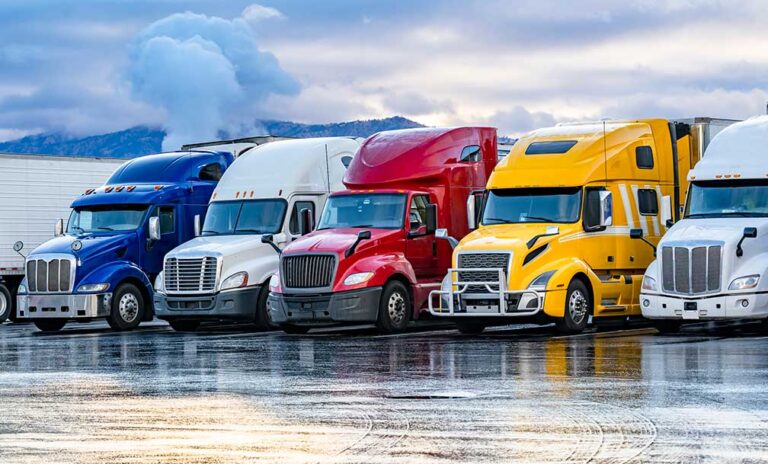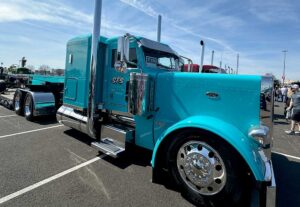With the swearing in of Donald Trump as President of the U.S. scheduled for January 20, the Truckload Carriers Association (TCA) plans to continue to advance the priorities of the truckload industry with a new administration.
In a November 15 press release, TCA issued this statement:
“The Truckload Carriers Association (TCA) congratulates President-elect Donald J. Trump on his election victory. We look forward to collaborating with his administration and the upcoming Congress. Together, we aim to advance the critical priorities of our truckload membership, which are essential to keeping America moving.
“With a commitment to promoting a balanced regulatory and legislative framework, TCA will continue to advocate for policies that support a sustainable and robust trucking industry. As the new administration and Congress begin their terms, TCA is dedicated to fostering collaboration and driving solutions that strengthen the industry’s ability to deliver essential goods, enhance safety, and contribute to economic growth.
“TCA looks forward to working with policymakers to address these pressing issues and advance legislation that empowers our members to keep America moving forward.”
Following are the association’s top legislative issues, along with predictions about what the future might hold under a new administration.
- Independent Contractor Status
In January 2024, the U.S. Department of Labor officially announced its final rule regarding the classification of independent contractors under the Fair Labor Standards Act. The new ruling under the Biden Administration featured six critical factors for which Independent Contractors must qualify. Due to its intricacies, the ruling jeopardizes the freedoms of those businesspeople who have chosen to become entrepreneurs.
Prediction: The previous rule under the Trump administration was straightforward, establishing two primary factors to determine independent contractors or employment status; TCA predicts that Trump and his administration will reinstate the original rule.
- Environmental Regulations
In March of 2024, the U.S. Environmental Protection Agency (EPA) announced a final rule, “Greenhouse Gas Emissions Standards for Heavy-Duty Vehicles-Phase 3,” which sets stringent standards and timelines to reduce greenhouse gas emissions from heavy-duty vehicles from model years 2027-2032.
The ruling itself relied heavily on battery-electric and hydrogen-electric power systems.
However, new battery-electric vehicles (BEVs) present significant challenges. They cost approximately $450,000 each, compared to around $180,000 for a diesel tractor. Additionally, the 16,000-pound batteries in these electric trucks reduce their cargo capacity, potentially requiring carriers to increase the number of trucks on highways to comply with the federal 80,000-pound weight limit while meeting shipping demands.
Prediction: In a letter drafted by U.S. Sen. Mike Crapo (R-Idaho) and Rep. Randy Feenstra (R-Iowa), the TCA along with more than 150 GOP members of Congress, urged Environmental Protection Agency (EPA) Administrator Michael Regan to withdraw the agency’s final rule “Greenhouse Gas Emissions Standards for Heavy-Duty Vehicles-Phase 3.”
Expectations suggest that the standards may be revised to levels deemed achievable for internal combustion engines, extending compliance timelines, and exploring alternative pathways to reach emissions targets, such as the adoption of renewable diesel.
- Infrastructure
In 2021, the Biden Administration signed the $1.2 trillion Investment & Jobs Act (IIJA) for transportation and infrastructure spending, putting aside $110 billion for roads, bridges and significant projects.
Prediction: Just as President Joe Biden played a large impact of the IIJA, Trump could similarly influence the 2026 infrastructure bill, potentially by reducing environmental provisions and allocating additional funds for expanding highway and bridge capacity.
- Truck Parking
Although the Biden administration did not set aside specific funding for truck parking initiatives in the IIJA, funding for infrastructure projects was generalized.
Prediction: The Truck Parking Safety Improvement Act (S.1034/H.R. 2367) calls for $755 million over the next three years to expand commercial motor vehicle parking throughout the country. The bill itself has been quite favorable for both Republican and Democratic parties, as it shows bipartisanship in both houses of Congress. Vice-President Elect J.D. Vance is a co-sponsor of the bill and has been an ally to the trucking industry.
- Speed Limiters
During the Biden-Harris administration, the Federal Motor Carrier Safety Administration sought to release a supplemental notice of proposed rulemaking on speed limiters for commercial trucks. However, the proposed rule has been delayed throughout Biden’s time in office. TCA has supported this safety technology as many of its carrier members have speed limiters in place.
Prediction: The speed limiter rule could be delayed, as many Republicans in Congress are not in favor of this technology. With a Trump administration and a prominently Republican Congress, a speed limiter ruling may never come in place.
- Lawsuit Abuse
The Biden-Harris administration supported labor law legislation to broaden the scope of violations and increase monetary damages, similar to those seen in truck accident lawsuits.
Prediction: The Trump-Vance administration is expected to support legislation that would allow lawsuits to be brought into the federal court system. This move could help curb “nuclear verdicts” (awards exceeding $10 million) against trucking companies. It would also advance tort reform efforts championed by the trucking industry, building on the momentum these reforms have gained at the state level.
- Size and Weight Limits
Historically, Congress has consistently opposed raising size and weight limits for semi-truck because of worries about public safety and potential damage to infrastructure. In 2015, the House of Representatives voted on a bipartisan basis to maintain the current federal limits.
However, Republicans have always favored increasing a tractor-trailer’s size and weight limits. In the 118th Congress, Rep. Dusty Johnson (R-South Dakota) introduced multiple bills that had language increasing the size and weight of commercial trucks, such as the Move Act (H.R.7496) and a 10-year pilot program that would increase the maximum weight of tractor trailers to 91,000 pounds.
Prediction: With a Republican administration and a Republican majority in Congress, legislation increasing federal tractor-trailer size and weight standards could likely be introduced into Congress.
Linda Garner-Bunch has been in publishing for more than 30 years. You name it, Linda has written about it. She has served as an editor for a group of national do-it-yourself publications and has coordinated the real estate section of Arkansas’ only statewide newspaper, in addition to working on a variety of niche publications ranging from bridal magazines to high-school sports previews and everything in between. She is also an experienced photographer and copy editor who enjoys telling the stories of the “Knights of the Highway,” as she calls our nation’s truck drivers.








